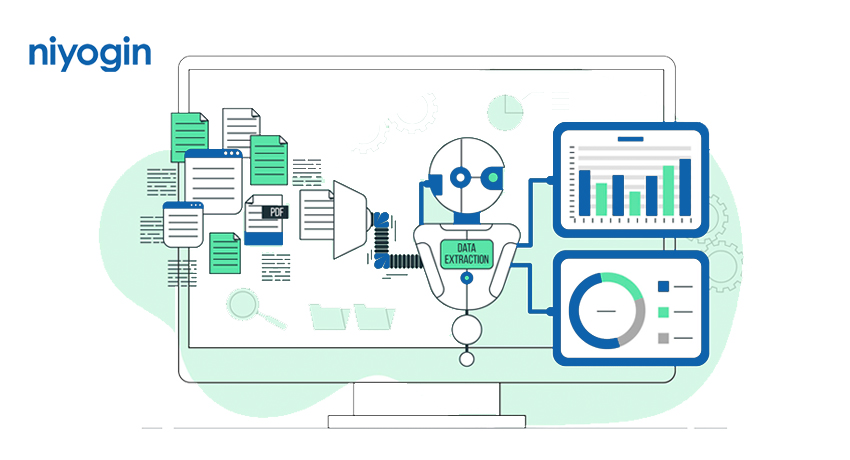India’s fintech sector stands on the brink of a Gen AI-powered revolution, prepared to unlock unprecedented levels of efficiency, innovation, and personalized experiences. However, this transformative potential is inextricably linked to a profound set of ethical dilemmas. The ethical concerns surrounding Gen AI require constant attention, from the threat of algorithmic bias aggravating already-existing inequalities to the constant danger of data breaches. A dedication to ethical AI practices is necessary to navigate this complicated terrain, guaranteeing that innovation advances the common good and creates a genuinely inclusive and equitable financial future for all Indians. 1. Data Governance and Security India’s fintech sector relies on vast amounts of personal and financial data for Gen AI-driven solutions like fraud detection and credit scoring, raising significant privacy concerns. With sensitive data involved, financial institutions must adopt robust data governance frameworks prioritizing privacy. The upcoming Indian Data Protection Bill will guide the sector, ensuring compliance to build trust. Techniques like differential privacy and federated learning can protect sensitive data, while regular audits and transparent data handling practices are essential to safeguard privacy and prevent breaches. 2. Ensuring fairness A key ethical challenge of Gen AI is algorithmic bias. AI systems trained on historical data may reflect societal inequalities, leading to biased outcomes. In India, this could impact credit scoring, disadvantaged groups like women, rural populations, or lower-income communities, furthering financial exclusion. Addressing bias is not just about fairness but also social responsibility. Indian fintech companies must proactively audit models, ensure diverse training data, and use fairness-aware algorithms. Promoting transparency in decision-making and explaining AI outcomes will help build trust and prevent discrimination. 4. Re-skilling for an AI-Driven Economy As Gen AI automates tasks like customer service and transaction monitoring, concerns about job displacement rise, particularly in India’s entry-level financial sector roles. To mitigate this, fintech companies must prioritize reskilling and upskilling initiatives. These programs can help employees transition to higher-value roles, such as AI model monitoring and data analysis, ensuring a workforce that complements AI rather than competing with it. Investing in human capital will help create a future-ready workforce. 5. Ethical Use of AI in Decision-Making Gen AI can influence key financial decisions, such as loan approvals, insurance underwriting, and investment advice. While AI’s ability to analyze vast datasets and identify patterns can improve decision-making accuracy, there is an ethical obligation to ensure these decisions are made responsibly and in the best interest of the customer. Fintechs must implement ethical guidelines that prioritize customer well-being and transparency in AI-driven decisions. This includes ensuring that AI systems are used to empower customers rather than exploit them, such as avoiding over-indebtedness through responsible lending practices. 6. Frameworks for Ethical AI Implementation India’s fintech sector is already operating within a rapidly evolving regulatory environment, with initiatives such as the Reserve Bank of India’s regulatory sandbox and the Indian Data Protection Bill providing a foundation for responsible AI integration. However, there is still a need for clear and comprehensive regulatory frameworks that address the unique challenges posed by Gen AI. The government, in collaboration with industry stakeholders, must develop policies that ensure AI is deployed responsibly across the fintech ecosystem. This includes defining clear standards for data privacy, algorithmic fairness, transparency, and accountability. By aligning regulatory policies with ethical AI principles, India can create a balanced environment that fosters innovation while protecting consumers and ensuring social good. 7. Inclusive Financial Services AI has the potential to drive greater financial inclusion, but only if it is deployed in an inclusive and equitable manner. India’s fintech sector has already made significant strides in providing services to underserved populations, including through digital wallets and micro-lending platforms. However, there is still much work to be done to ensure that AI benefits all segments of society, especially marginalized groups. Fintech companies must design their AI-driven solutions to be inclusive by tackling language barriers, enhancing access to financial services for rural populations, and offering digital literacy programs. By prioritizing inclusivity, India’s fintech industry can ensure that Gen AI does not inadvertently deepen the digital divide but instead fosters a more equitable financial landscape. While the technology holds enormous potential to enhance financial services, it is paramount to understand that it also presents significant risks that must be carefully managed. With the right frameworks in place, India has the opportunity to become a global leader in the ethical integration of AI, driving innovation while safeguarding the interests of consumers and society.
Tag: artificial intelligence
Building Trust in Gen AI: A Roadmap for the Financial Industry
Generative AI is rapidly emerging as a transformative force in the financial industry, with the potential to revolutionize operations, enhance efficiency, and deliver tailored experiences to customers. From automating tasks to improving fraud detection and predictive analytics, Gen AI holds great promise. However, its successful integration into the financial sector depends heavily on building trust among stakeholders, including regulators, institutions, employees, and customers. Key Challenges and Considerations As Indian financial institutions explore the potential of Gen AI, several key challenges must be addressed to build trust and ensure its effective integration: Safeguarding sensitive customer data is paramount, and establishing robust data governance frameworks is essential for privacy protection and compliance with regulations like the Indian Data Protection Act. This builds trust, ensuring that data is handled securely. AI models can inherit biases from training data, leading to unfair outcomes. Proactive bias detection and mitigation are crucial to ensure that AI systems produce fair and equitable results, fostering trust among users. Additionally, many AI models are “black boxes,” making it difficult to understand how decisions are made. Investing in explainable AI (XAI) techniques is vital to provide transparency and accountability, allowing users to comprehend and trust AI-driven decisions. AI-driven automation also raises concerns about job displacement. To address this, financial institutions should focus on reskilling and upskilling employees, ensuring a smooth transition to an AI-enhanced future. Finally, establishing ethical guidelines and responsible AI practices is critical. Ensuring AI aligns with societal values and accountability will help institutions deploy the technology in a responsible manner that benefits both businesses and society. Building a Trustworthy Gen AI Ecosystem To successfully integrate Gen AI into finance, institutions must focus on several key actions to create a trustworthy ecosystem. The Indian Fintech Landscape India’s fintech sector has emerged as one of the fastest-growing globally, driven by a young and tech-savvy population, widespread smartphone usage, and a regulatory environment that supports innovation. AI adoption in the Indian fintech sector is accelerating, with companies leveraging machine learning, natural language processing, and computer vision to enhance customer experience, improve fraud detection, and automate financial processes. However, challenges persist, including limited access to financial services for underserved populations, cybersecurity threats, and the need for enhanced financial literacy. The Reserve Bank of India (RBI) has been proactive in encouraging the responsible use of AI, with a focus on data privacy, security, and fairness. The Indian regulatory framework provides a foundation for responsible AI adoption, making it an ideal environment for building a trustworthy Gen AI ecosystem. India’s rapidly growing fintech sector, supported by a forward-thinking regulatory environment, is well-positioned to lead the world in the ethical and responsible adoption of Gen AI. By nurturing a collaborative ecosystem emphasizing human-centric AI and accountable innovation, India’s financial institutions must exercise the transformative power of Gen AI to reshape the future of finance, delivering a more inclusive, efficient, and personalized financial experience for all.
The Future of Fintech: How Gen AI is Reshaping the Industry
Generative Artificial Intelligence or Gen AI as we call it is rapidly reshaping the fintech landscape, offering significant advancements that are transforming financial services across the globe. As AI models become more advanced, they are driving the next generation of fintech innovations, improving customer experiences, optimizing operational efficiency, and enhancing security protocols. By analyzing vast amounts of data and automating complex processes, Gen AI is poised to redefine the way financial institutions and fintech companies interact with customers and make strategic decisions. 1. Personalized Financial Advice Gen AI leverages vast data sets, including spending habits, income, and economic trends, to deliver highly personalized financial advice, such as customized investment strategies, retirement planning, and budgeting solutions. It can also forecast market movements and recommend adaptive strategies, helping clients make informed decisions. Furthermore, AI-powered virtual assistants and chatbots provide real-time, 24/7 customer support, delivering tailored responses, resolving specific concerns, and offering proactive guidance. This enhances customer satisfaction by ensuring fast, accurate, and accessible service at any time, creating a seamless and personalized experience. 2. Automated Financial Processes AI-driven automation is transforming back-office operations within the fintech industry by streamlining tasks that were traditionally time-consuming and manual. Processes like loan processing, fraud detection, and compliance checks are now being automated, enabling financial institutions to operate more efficiently and accurately. AI can analyze vast and complex data sets in real-time, identifying patterns and anomalies that human teams might miss, thus enhancing decision-making and reducing the risk of errors. This capability extends to optimizing risk management by assessing creditworthiness, predicting potential risks, and fine-tuning investment strategies with greater precision. The result is a more efficient operation that reduces costs, improves regulatory compliance, and delivers better financial outcomes for both institutions and customers. By leveraging AI, fintech companies can enhance their service offerings, respond faster to market changes, and provide more personalized, data-driven financial solutions. 3. Enhanced Security and Fraud Prevention AI is revolutionizing fintech by bolstering security and fraud prevention. By analyzing vast amounts of transaction data in real-time, AI can swiftly identify anomalies and suspicious patterns, enabling swift action to thwart fraudulent activities. This proactive approach significantly reduces financial losses and builds trust between financial institutions and their customers. Furthermore, AI acts as a vigilant guardian of sensitive financial information. By continuously monitoring networks and systems, AI can proactively identify vulnerabilities, predict potential attacks, and deploy countermeasures before damage occurs. 4. Innovative Financial Products AI is driving the evolution of fintech by enabling the creation of personalized financial products and innovative business models. From tailored insurance policies and investment portfolios to predictive analytics for risk assessment and AI-powered trading platforms, Gen AI is reshaping the financial landscape, delivering more relevant and efficient solutions. The Road Ahead The future of fintech powered by Gen AI looks promising. As AI technologies continue to evolve, they will become even more integrated into financial services, driving innovation, efficiency, and customer satisfaction. Financial institutions and fintech companies that embrace AI will be better equipped to meet the demands of an increasingly digital, data-driven world. However, the challenges associated with AI adoption—particularly in the areas of data privacy, ethics, and regulation—must be carefully managed to ensure that the benefits of this technology can be fully realized. By addressing these concerns, the fintech industry can build a more efficient, inclusive, and customer-centric future for financial services. As we look to the future, the full potential of AI in reshaping the financial landscape will continue to unfold, ushering in an era of smarter, more personalized, and more efficient financial services.
How do Robo-advisors in the fintech landscape use AI algorithms?
Robo-advisors are revolutionizing the rapidly evolving fintech landscape by employing AI and Gen AI algorithms to deliver tailored financial guidance to investors. These automated investment platforms utilize sophisticated algorithms and machine learning techniques to assess risk profiles, analyze data, and craft personalized investment strategies that align with each client’s unique objectives and preferences. Unlike traditional financial advisors, robo-advisors leverage AI algorithms to gather and process data on investors’ goals, risk appetite, and financial circumstances, leveraging this information to propose customized investment portfolios. Artificial Intelligence Algorithms Driving Personalization Robo-advisors aid in data aggregation and analysis by collecting information from a variety of sources, such as risk profiles, investment preferences, and financial accounts. Through the processing of this data, AI algorithms can generate customized investment recommendations by gaining insight into the financial situations, goals, and risk appetite of investors. AI systems also help evaluate the risk profiles of investors by looking at variables like age, income, time horizon for investments, and risk appetite. Robo-advisors have fundamentally transformed wealth management by democratizing access to advanced investment strategies that were once limited to affluent investors. Their automated, algorithm-driven approach has resonated strongly with a broad spectrum of investors, driving a significant rise in adoption rates. This surge is fueled by their ability to offer cost-effective, transparent, and personalized financial advice, appealing particularly to tech-savvy millennials and retirees alike. Robo-advisors leverage data analytics and machine learning to maintain remarkably low error rates, continually refining their algorithms based on market trends and user preferences. This self-learning capability not only optimizes investment outcomes over time but also bolsters investor confidence in navigating dynamic markets, ensuring consistent returns, and solidifying their role in modern wealth management strategies. Benefits of AI-Powered Robo-Advisors Robo-advisors excel in managing data related to individual investor preferences, risk appetite, financial goals, and market trends. They gather and analyze data points such as income, age, investment horizon, and desired returns to recommend personalized investment strategies. These strategies typically include a broad range of investments including stocks, bonds, ETFs, and sometimes alternative assets like commodities or real estate investment trusts (REITs). Robo-advisors utilize algorithms to allocate and rebalance portfolios efficiently, aiming to optimize returns while adhering to the client’s risk profile. While they are proficient in data-driven decision-making, robo-advisors complement rather than replace human wealth managers. By handling routine tasks such as portfolio management and asset allocation, they free up wealth managers to focus on more complex financial planning and personalized client interactions. This symbiotic relationship enhances overall service delivery without jeopardizing the role of wealth managers, who continue to provide invaluable expertise and guidance in navigating complex financial landscapes. The Robo-Advisors market in India is projected to witness significant growth in the coming years. According to the Statista report, it is likely to grow at a projected annual growth rate of 9.21% between 2024-2027. Robo-advisors, like Niyogin’s own subsidiary platform InvestDirect https://www.moneyfront.in/ represent a disruptive force, democratizing access to personalized financial advice through AI algorithms. As AI evolves, they will play a pivotal role in shaping investment management’s future, offering personalized solutions catering to individual investors’ diverse needs and preferences. This competitive landscape will propel India’s economic growth, boost job creation, and position the Indian fintech industry as a strong contender in innovation and entrepreneurship.
Indian banks migrating to digital channels; more on the evolution
The evolution of Indian banks migrating to digital channels can be traced back to the early 2000s when the Reserve Bank of India (RBI) started promoting the use of electronic payment systems. The introduction of the National Electronic Fund Transfer (NEFT) in 2005 and the Immediate Payment Service (IMPS) in 2010 were significant steps toward the digitization of payments. However, the real push towards digital banking in India came with the demonetization drive in November 2016. The sudden withdrawal of high-value currency notes led to a surge in digital payments, forcing banks to ramp up their digital infrastructure and services. Since then, there has been a significant increase in the adoption of digital channels by Indian banks. Today, most banks in India offer a range of digital services, including mobile banking, internet banking and digital wallets. Customers can access their accounts, transfer funds, pay bills and even apply for loans online or through mobile apps. Banks also invest heavily in artificial intelligence, chatbots and other digital technologies to enhance customer experience and streamline operations. The COVID-19 pandemic further accelerated the adoption of digital banking in India as customers increasingly relied on online channels to conduct their banking transactions. Banks responded by launching new digital products and services, such as video KYC (Know Your Customer) and virtual credit cards. Examples of Banks that have revamped their offerings approach Indian banks are increasingly adopting digital channels to provide a more convenient and efficient banking experience to their customers. Whether it was Internet banking to reduce touchpoints or mobile banking to bring services to your fingertips, the transformation has been massive. Building on the evolution, Indian banks also proactively introduced altering service designs and encouraged the use of contactless payments through technologies like the NFC, QR codes, mobile wallets, etc. Today, urban India experiences the provision to make payments to street vendors too through digital methods. It is a vision to convert India into a digital-first country from a cash-heavy economy and joining force with the banks to achieve the said vision is Fintechs. Collaborating with Fintechs has accelerated the entire process whether in terms of internal operations of the bank or external aspects. The evolution of Indian banks migrating to digital channels has been rapid and transformative and the trend is expected to continue as more customers shift towards digital banking.




